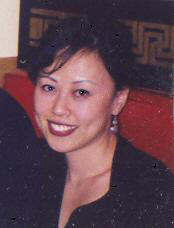Sociology assistant professor Kelly Chong explores the dynamics of the making and negotiation of ethnic-racial identity/culture among second-generation Asian Americans through a detailed examination of how ethnic-racial identities evolve and come to matter for these Asian American “boundary crossers” as they marry and begin to raise children. Intermarriage is a terrain in which complex subjective negotiations over ethnic/racial identity are waged. Even given their embeddeness within current multicultural and color-blind discourses, particularly as members of a “model minority” group, race matters for Asian Americans; not only are the selfhoods, intimate desires, and marital choices of the participants shaped centrally by their location within the system of racial stratification, but their long-standing ambivalence toward their ethnic identity/culture on the one hand, and toward their desire for white privilege on the other, becomes projected onto their mixed-raced children who, in their bi-raciality, come to embody and symbolize this tension, as well as hopes for overcoming such tension.
Image

